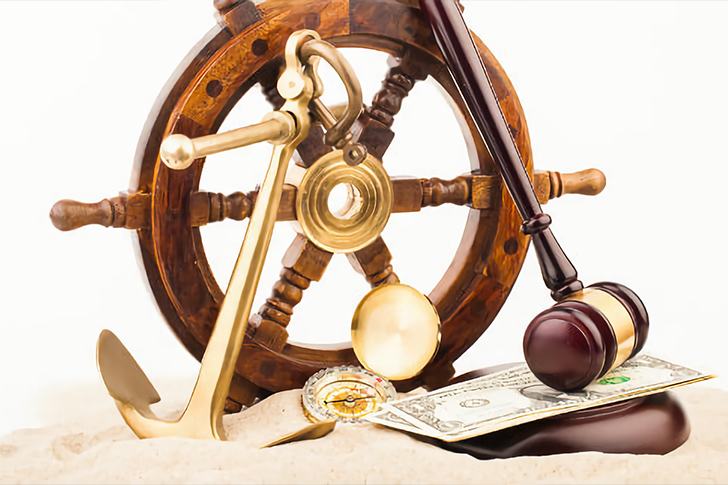Embarking on a legal career within maritime law requires both navigation skills and specialized knowledge. Set sail on your journey with practical counsel.

Maritime law, also known as admiralty law, is a distinct body of law that governs nautical issues and private maritime disputes. This specialty area encompasses a wide range of matters including shipping, navigation, waters, commerce, and the land-based activities that are maritime in nature. For lawyers interested in a career that combines international law, commerce, and the thrill of the sea, specialization in maritime law could be an exhilarating and rewarding path. Here's a concise guide for lawyers considering this niche legal field.
Understanding the Scope of Maritime Law
Maritime law covers an array of legal areas including, but not limited to, shipping and transportation of goods, maritime contracts, labor laws for seafarers, insurance, maritime liens and mortgages, salvage and treasure salvage, piracy, and the operation of vessels. This legal domain is inherently international, often requiring a sound understanding of international treaties, conventions, and customs alongside domestic laws.
Educational Foundation and Qualifications
Pursuing specialization in maritime law typically begins with a strong foundation in law. Many maritime lawyers are graduates of law schools that offer specialized courses in maritime or international trade law. While a degree in maritime law isn't always a prerequisite, obtaining a Master of Laws (LL.M.) in maritime law or related certifications can significantly bolster a lawyer's qualifications.
Gaining the Right Experience
Intertwined with law and commerce on international waters, it’s beneficial for aspiring maritime lawyers to gain experience in related areas such as international trade, environmental law, insurance, or even serving in the navy or working at sea. Internships, clerkships, or entry-level work at law firms with a maritime law practice can provide practical experience and a valuable introduction to the field.
Staying Abreast of International Regulations
Maritime law is heavily influenced by international regulations and conventions, which are constantly evolving. Lawyers in this field must stay current with developments by regularly reviewing updates from the International Maritime Organization (IMO), United Nations, and other regulatory bodies. Lawyers need to comprehend how these regulations interact with state and territorial laws where vessels are registered or where incidents occur.
Networking and Professional Affiliation
Building professional relationships is crucial in every legal field, and maritime law is no exception. Joining professional organizations, such as the Maritime Law Association of the United States or the International Maritime Organization, can be beneficial for networking, continued education, and staying informed about the industry's best practices.
Deciding a Sub-specialty within Maritime Law
Given the breadth of maritime law, some practitioners choose to focus on a sub-specialty such as marine environmental law, maritime personal injury, international shipping law, or maritime arbitration. This sub-specialization can set a lawyer apart as an expert in a particular niche within the field.
Challenges and Rewards
Maritime law is challenging, given its complex jurisdictional issues and the intricate balance of international and domestic law. However, the challenge is often what draws lawyers to this practice area. The field can be exceptionally rewarding for those passionate about the sea, international affairs, and commerce. It offers the opportunity to work on a global stage, often dealing with high-stakes transactions and cutting-edge legal matters.
Conclusion
Navigating maritime law as a specialization requires a combination of specialized education, relevant experience, and a commitment to continuous learning. It's a legal practice that can provide a varied and internationally-focused career for lawyers who are drawn to the unique interaction between law and sea. By focusing on networking, keeping updated on international legislation and procedures, and possibly choosing a sub-specialty, lawyers can develop a successful and fulfilling practice in maritime law.
Explore the Tranquil Bliss of Idyllic Rural Retreats

Ultimate Countdown: The 20 Very Legendary Gaming Consoles Ever!

Understanding Halpin and its Influence

Affordable Full Mouth Dental Implants Near You

Discovering Springdale Estates

Illinois Dentatrust: Comprehensive Overview

Embark on Effortless Adventures: Unveiling the Top in Adventures Made Easy Outdoor Equipment

Unveiling Ossur Valves: Innovation in Prosthetics

Unlock the Full Potential of Your RAM 1500: Master the Art of Efficient Towing!
